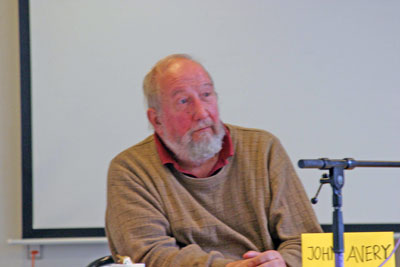Racism, Colonialism And Exceptionalism
By John Scales Avery
10 October, 2013
Countercurrents.org
"What makes America different, what makes us exceptional, is that we are dedicated to act." (Barak Obama, speech, September, 2013)
It seems to be possible for nations, and the majority of their citizens, to commit the worst imaginable atrocities, including torture, murder and genocide, while feeling that what they are doing is both noble and good.. Some understanding of how this is possible can be gained by watching the 3-part BBC documentary, “The History of Racism”.
The series was broadcast by BBC Four in March 2007. and videos of the broadcasts are available on the Internet. Watching this eye-opening documentary can give us much insight into the link between racism and colonialism. We can also begin to see how both racism and colonialism are linked to US exceptionalism and neocolonialism.
Looking at the BBC documentary we can see how often in human history economic greed and colonial exploitation have been justified by racist theories. The documentary describes almost unbelievable cruelties committed against the peoples of the Americas and Africa by Europeans. For example, in the Congo, a vast region which which King Leopold II of Belgium claimed as his private property, the women of villages were held as hostages while the men were forced to gather rubber in the forests. Since neither the men nor the women could produce food under these circumstances, starvation was the result.
Leopold's private army of 90,000 men were issued ammunition, and to make sure that the used it in the proper way, the army was ordered to cut off the hands of their victims and send them back as proof that the bullets had not been wasted. Human hands became a kind of currency, and hands were cut off from men, women and children when rubber quotas were not fulfilled. Sometimes more than a thousand human hands were gathered in a single day. During the rule of Leopold, roughly 10,000,000 Congolese were killed, which was approximately half the population of the region.
According to the racist theories that supported these atrocities, it was the duty of philanthropic Europeans like Leopold to bring civilization and the Christian religion to Africa. Similar theories were used to justify the genocides committed by Europeans against the native inhabitants of the Americas. Racist theories were also used to justify enormous cruelties committed by the British colonial government in India. For example, during the great famine of 1876-1878, during which ten million people died, the Viceroy, Lord Lytton, oversaw the export to England of a record 6.4 million hundredweight of wheat.
Meanwhile, in Europe,almost everyone was proud of the role which they were playing in the world. All that they read in newspapers and in books or heard from the pulpits of their churches supported the idea that they were serving the non-Europeans by bringing them the benefits of civilization and Christianity. Kipling wrote: “Take up the White Man's burden, Send forth the best ye breed, Go bind your sons to exile, To serve your captives' need; To wait in heavy harness, On fluttered folk and wild, Your new-caught, sullen peoples, Half-devil and half-child.” On the whole, the mood of Europe during this orgy of external cruelty and exploitation, was self-congratulatory.
Can we not see a parallel with the self-congratulatory mood of the American people and their allies, who export violence to the whole world, but who think of themselves as “exceptional”?
 John Avery received a B.Sc. in theoretical physics from MIT and an M.Sc. from the University of Chicago. He later studied theoretical chemistry at the University of London, and was awarded a Ph.D. there in 1965. He is now Lektor Emeritus, Associate Professor, at the Department of Chemistry, University of Copenhagen. Fellowships, memberships in societies: Since 1990 he has been the Contact Person in Denmark for Pugwash Conferences on Science and World Affairs. In 1995, this group received the Nobel Peace Prize for their efforts. He was the Member of the Danish Peace Commission of 1998. Technical Advisor, World Health Organization, Regional Office for Europe (1988- 1997). Chairman of the Danish Peace Academy, April 2004. http://www.fredsakademiet.dk/ordbog/aord/a220.htm. He can be reached at [email protected]
John Avery received a B.Sc. in theoretical physics from MIT and an M.Sc. from the University of Chicago. He later studied theoretical chemistry at the University of London, and was awarded a Ph.D. there in 1965. He is now Lektor Emeritus, Associate Professor, at the Department of Chemistry, University of Copenhagen. Fellowships, memberships in societies: Since 1990 he has been the Contact Person in Denmark for Pugwash Conferences on Science and World Affairs. In 1995, this group received the Nobel Peace Prize for their efforts. He was the Member of the Danish Peace Commission of 1998. Technical Advisor, World Health Organization, Regional Office for Europe (1988- 1997). Chairman of the Danish Peace Academy, April 2004. http://www.fredsakademiet.dk/ordbog/aord/a220.htm. He can be reached at [email protected]
Comments are moderated
